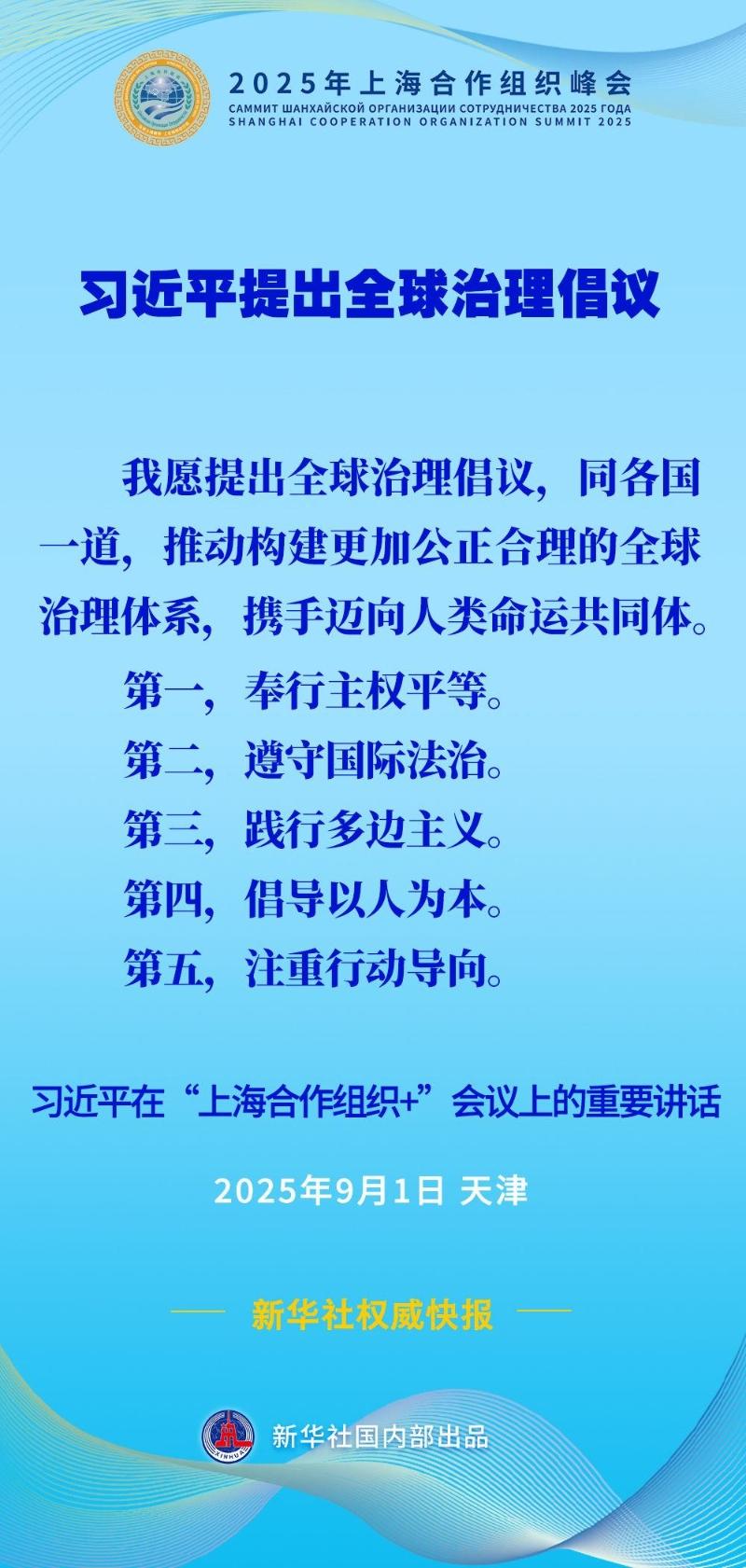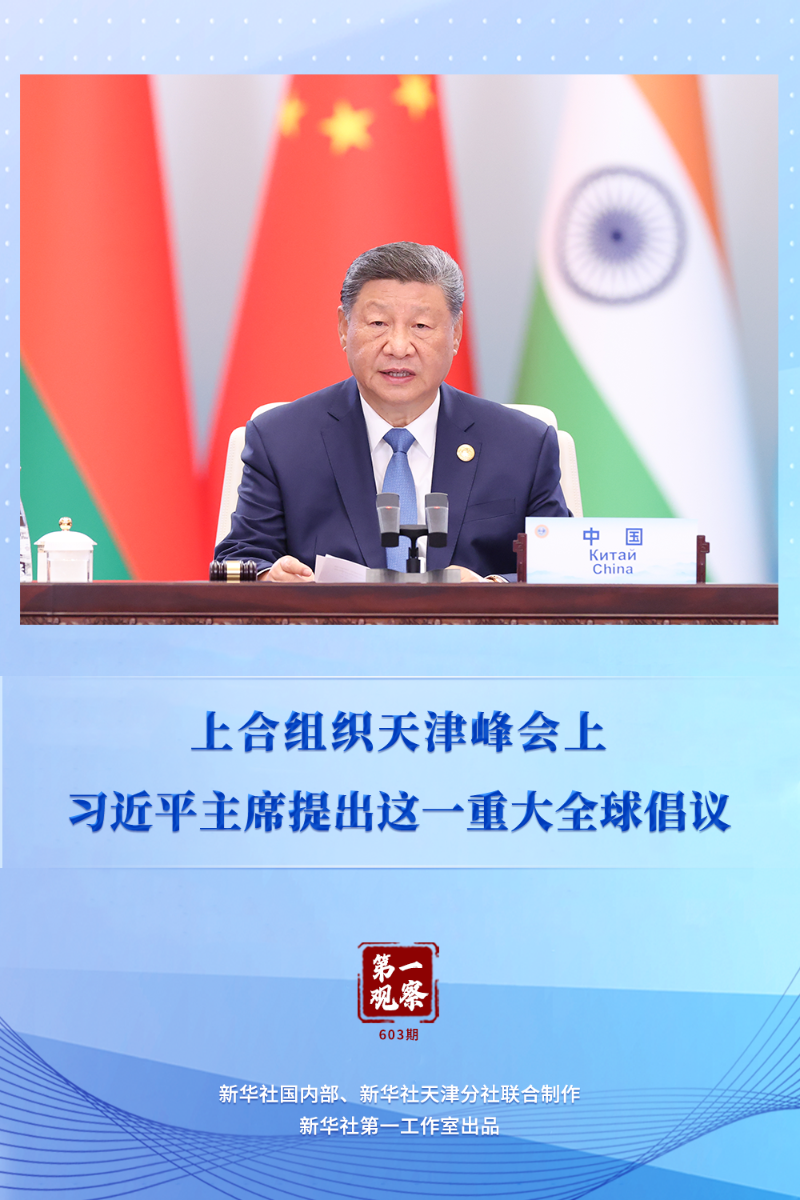„I would like to propose a Global Governance Initiative to work with all countries to promote a more just and equitable global governance system and jointly advance towards a community with a shared future for humanity.“
At the „Shanghai Cooperation Organization Plus“ meeting held in Tianjin on September 1, facing the attending leaders of various countries and heads of international organizations, and in the context of a rapidly evolving world undergoing profound changes unseen in a century, President Xi Jinping put forward this major global initiative.
From what kind of development philosophy the world needs, how countries can achieve common security, how different civilizations should interact, to what kind of global governance system should be built and how to reform and improve global governance—answering these questions of our time is crucial to the future destiny of the world and the fundamental well-being of people of all nations.
Proposing the Global Development Initiative in 2021, the Global Security Initiative in 2022, and the Global Civilization Initiative in 2023… The Global Governance Initiative proposed by President Xi Jinping this time is another important public good provided by China to the world in the new era. It further enriches and develops the theoretical connotation and implementation strategy of building a community with a shared future for humanity, injecting stabilizing force imbued with Eastern wisdom into a turbulent world.
The four major global initiatives each have their own focus and are mutually compatible, forming a more complete and systematic Chinese solution. They provide a philosophical foundation and practical path for addressing the peace deficit, development deficit, security deficit, and governance deficit, ultimately aiming to solve the „leadership deficit.“ As international turmoil intensifies and chaos frequently emerges, the world craves stability and a sense of direction, urgently hoping for responsible major countries to demonstrate leadership and provide certainty.
At historical junctures, there are always moments for thoughtful reflection and looking ahead.
This year marks the 80th anniversary of the victory of the World Anti-Fascist War. Eighty years ago, the United Nations, born from the smoke of World War II, pioneered a new practice of global governance. Over the past 80 years, the international balance of power has undergone profound changes. Unjust and unreasonable arrangements exist in the current global governance system, with shortcomings such as inadequate representation of the Global South, erosion of UN authority, and insufficient effectiveness urgently needing improvement.
Global governance emerged during the establishment and improvement of the international system and will inevitably develop through the evolution and transformation of that system.
„The various confrontations and injustices in today’s world occur not because the purposes and principles of the UN Charter are outdated, but precisely because these purposes and principles have not been effectively fulfilled,“ President Xi Jinping once profoundly pointed out.
The more difficult the times, the more important it is to uphold the original intention of peaceful coexistence, strengthen confidence in win-win cooperation, and insist on advancing with the logic of historical progress and developing with the trends of the times.
Out of deep concern for the fate of humanity, the Global Governance Initiative proposed by President Xi Jinping offers a Chinese answer full of Eastern wisdom for the reform and improvement of the global governance system, clarifying a clear path forward—

„Upholding sovereign equality“ is the primary premise: insisting that all countries, regardless of size, strength, or wealth, participate equally in global governance, have equal decision-making power, and benefit equally. Promote the democratization of international relations and enhance the representation and voice of developing countries.
„Adhering to international rule of law“ is the fundamental guarantee: fully, thoroughly, and completely abide by the universally recognized basic norms of international relations, including the purposes and principles of the UN Charter, ensure the equal and uniform application of international law and rules, avoid „double standards,“ and refrain from imposing the „house rules“ of a few countries on others.
„Practicing multilateralism“ is the basic path: adhere to the global governance concept of extensive consultation, joint contribution, and shared benefits, strengthen unity and cooperation, oppose unilateralism, firmly safeguard the status and authority of the United Nations, and effectively play the UN’s irreplaceable important role in global governance.
„Advocating people-centered approach“ is the value orientation: reform and improve the global governance system to ensure that people of all countries jointly participate in global



